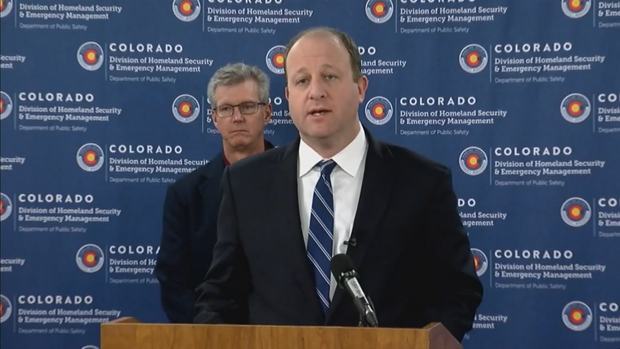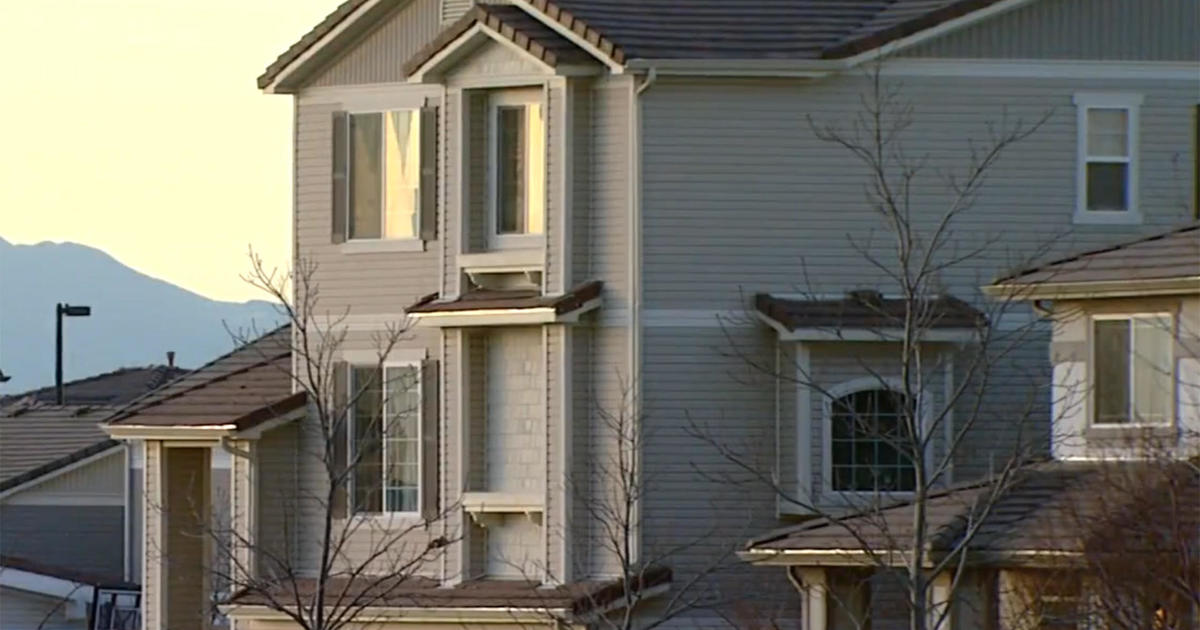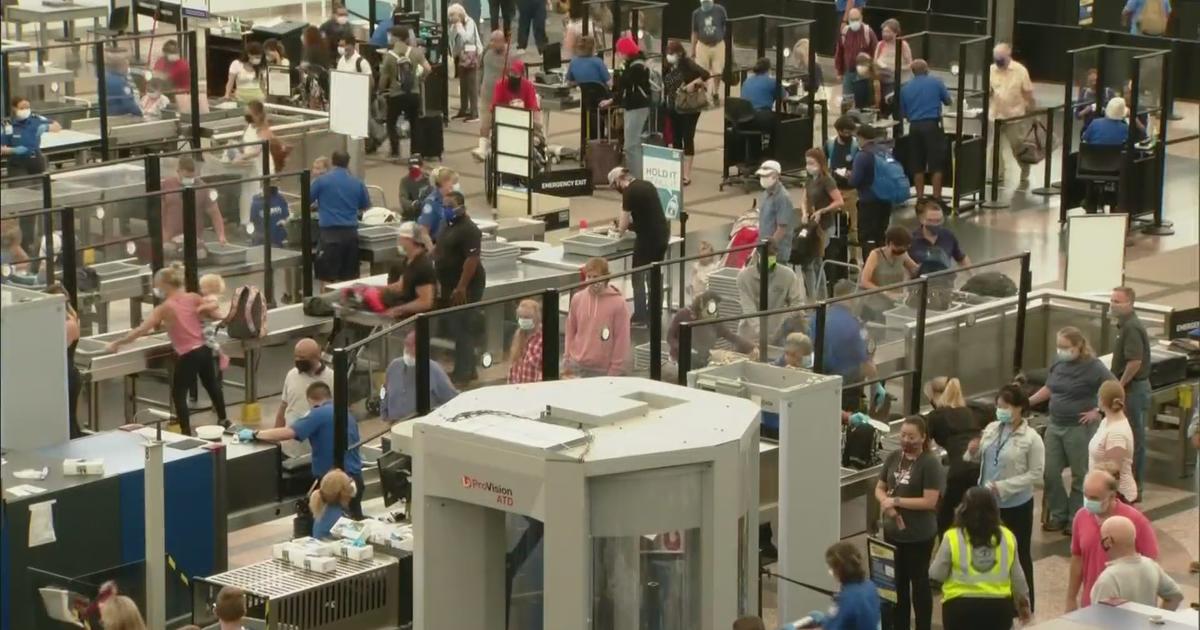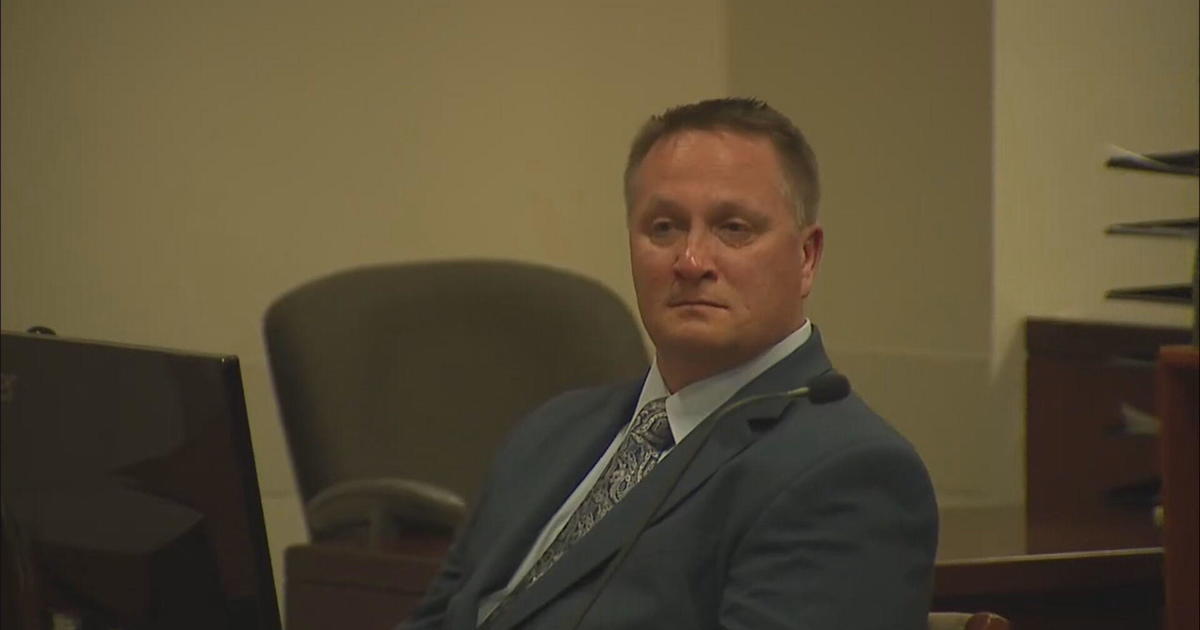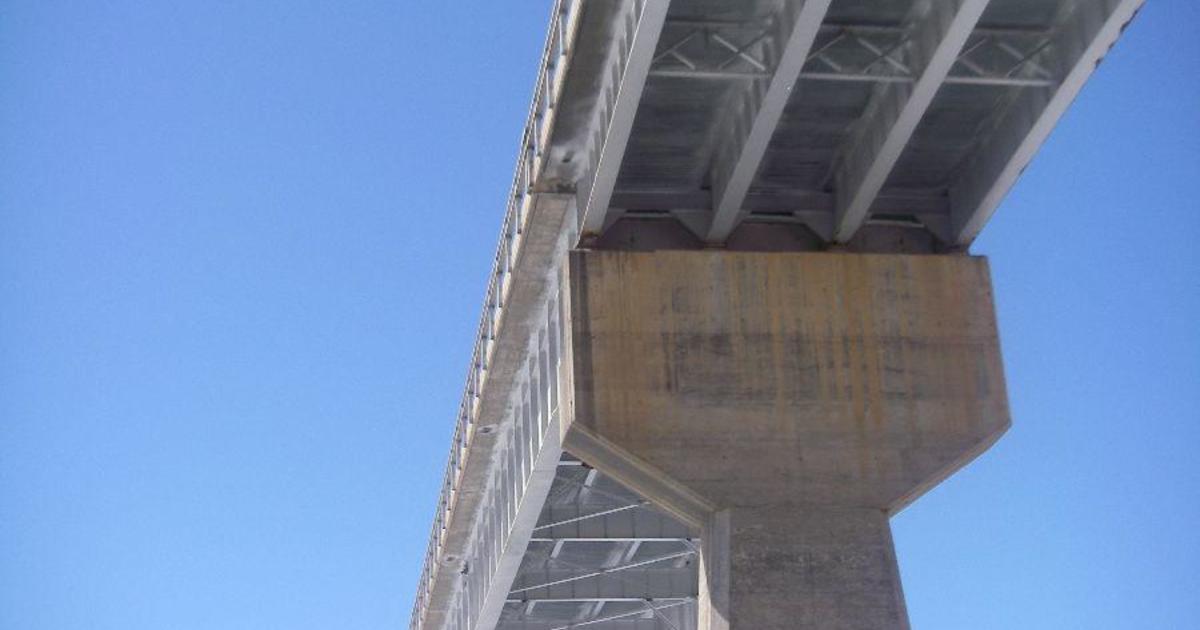Colorado Stay-At-Home Order Explained: What Will And Won't Be Open
(CBS4) - In late March Gov. Jared Polis announced an executive order for Coloradans to stay at home in order to help prevent the spread of coronavirus. The stay-at-home order went into effect at 6 a.m. on March 26 and will last through April 26. (The original order was set to end on April 11 but Polis extended it on April 7.
The stay-at-home order is mandatory and includes the entire state. It requires people to remain in their homes unless they are going to and from work in a critical industry or doing an essential task like going to the grocery store or walking a pet.
Playgrounds and picnic areas will be closed but many local parks and outdoor spaces will remain open for outdoor exercise. People who choose to exercise outdoors should continue practicing social distancing by staying at least 6 feet away from other people.
The statewide order allows people to travel to outdoor areas for hiking and exercise. However, residents should check with their local health department to see if there are additional restrictions.
Grocery stores, pharmacies and gas stations will remain open and grocery delivery will be available as well as meal-delivery, drive through, and take-out options. Liquor and cannabis stores will also remain open while enforcing social distancing.
Houses of worship may remain open, but must practice social distancing or use electronic platforms. Pastoral services may also continue for individuals who are in crisis or need end-of-life services.
Schools can continue to provide free food services for students on a pick-up and take-home basis. Public and private schools, including postsecondary institutions, may provide essential functions such as security, medical and mental health service, housing, food service and critical research, provided that social distancing requirements are observed.
Licensed child care will remain open for essential workers. Necessary travel includes transporting children between separate households according to a parenting plan. For urgent child care needs, contact 2-1-1.
Roads will not close in Colorado. Officials say public transportation and ridesharing should be used for essential travel only. When possible, residents are asked to walk or drive themselves. According to the order, planes and other forms of travel should only be used if absolutely necessary.
RELATED: Latest Updates On The Coronavirus Outbreak In Colorado
The Department of Public Health and Environment is suspending the state's vehicle emission testing in response to the stay-at-home order. The order applies to emissions testing for both gasoline and diesel-powered vehicles. State officials will soon provide information on extended vehicle registration renewal deadlines through the duration of the order.
Several counties and cities enacted stay-at-home orders before the statewide order was announced. Requirements under those orders that are more restrictive than the statewide order will remain in place.
The stay-at-home order is an executive order, which means it is Colorado law. Residents who suspect that someone is violating the order should first contact their local public health agency to report any concerns. Residents may also file a report with the Colorado Attorney General's Office by emailing covid19@coag.gov if local law enforcement or a local public health agency is unresponsive.
For more information about the public health order and how it is enforced, click here.
Essential tasks allowed under the stay-at-home order:
- Shopping for groceries or other household necessities
- Delivering supplies to others, such as food, pet supply and other household products
- Outdoor activities, such as walking, hiking, nordic skiing, snowshoeing, biking or running while maintaining social distance
- Caring for a family member, vulnerable person or pet in another household
- Caring for livestock kept at a location other than an individual's home
- Seeking medical care
*Individuals experiencing symptoms of coronavirus must self-isolate until their symptoms cease or they have a negative test result.
Businesses and Industries exempt from the stay-at-home order:
1. Healthcare Operations:
- Hospitals, clinics, and walk-in health facilities
- Medical and dental care, including ambulatory providers
- Research and laboratory services
- Medical wholesale and distribution
- Home health care companies, workers and aides
- Pharmacies
- Pharmaceutical and biotechnology companies
- Behavioral health care providers
- Veterinary care and livestock services
- Nursing homes, residential health care, or congregate care facilities
- Medical supplies and equipment manufacturers and providers, including durable medical equipment technicians and suppliers
*Health clubs are not exempt from the order, including fitness and exercise gyms
2. Critical Infrastructure:
- Utilities including power generation, fuel supply and transmission
- Oil and gas production field operations
- Public water and wastewater
- Telecommunications and data centers
- Transportation and infrastructure necessary to support authorized businesses
- Hotels and places of accommodation
- Businesses and organizations that provide food, shelter, social services, and other necessities of life for economically disadvantaged, persons with access and functional needs, or otherwise needy individuals
- Food and plant cultivation, including farming crops, livestock, food processing and manufacturing, animal feed and feed products, rendering, commodity sales, and any other work critical to the operation of any component of the food supply chain
3. Critical Manufacturing:
- Food processing, manufacturing agents, including all foods and beverages
- Chemicals
- Medical equipment supplies or instruments
- Pharmaceuticals
- Sanitary products
- Telecommunications
- Microelectronics/semiconductor
- Agriculture/farms
- Household paper products
- Any business that produces products critical or incidental to the processing, functioning, development, manufacture, or delivery of any of the
critical manufacturing bullet points listed above
4. Critical Retail:
- Grocery stores including all food and beverage stores
- Farm and produce stands
- Gas stations and convenience stores
- Restaurants/bars (for take-out/delivery only)
- Marijuana dispensary
- Firearms stores
- Hardware, farm supply, and building material stores
- Establishments engaged in the retail sale of food and any other household consumer products (such as cleaning and personal care products)
- Pet stores
- Liquor stores
5. Critical Services:
- Trash and recycling collection, processing and disposal
- Mail and shipping services, and locations that offer PO boxes
- Laundromats and dry cleaning services
- Building cleaning and maintenance
- Child care services for critical employees
- Auto supply and repair (including retail dealerships that include repair and maintenance, provided that retail activity ceases)
- Warehouse/distribution and fulfillment
- Funeral homes, crematoriums and cemeteries
- In-person pastoral services for individuals who are in crisis or in need of end of life services provided social distancing is observed
- Storage for critical businesses
- Animal shelters, animal rescues, zoological facilities, animal sanctuaries, and other related facilities
6. News Media
- Newspapers
- Television
- Radio
- Other media services
7. Financial Institutions:
- Banks and credit institutions
- Insurance, payroll, and accounting services
- Services related to financial markets
- Professional services, such as legal, title companies, real estate appraisals and transactions
8. Providers of Basic Necessities to Economically Disadvantaged Populations:
- Homeless shelters and congregate care facilities
- Food banks
- Human services providers whose function includes the direct care of patients in state-licensed or funded voluntary programs; the care, protection, custody and oversight of individuals both in the community and in state-licensed residential facilities; those operating community shelters and other critical human services agencies providing direct care or support
9. Construction:
- Especially for housing and housing for low-income and vulnerable people
- Skilled trades such as electricians, plumbers
- Other related firms and professionals for who provide services necessary to maintain the safety, sanitation, and critical operation of residences
10. Defense:
- Defense and security-related operations supporting the State of Colorado, local government, the U.S. Government or a contractor to either or all.
11. Critical Services Necessary to Maintain the Safety, Sanitation and critical Operations of Residences or Other critical Businesses:
- Law enforcement
- Fire prevention and response
- Building code enforcement
- Security
- Emergency management and response
- Building cleaners or janitors
- General maintenance whether employed by the entity directly or a vendor
- Automotive repair
- Disinfection
- Snow removal
12. Vendors that Provide Critical Services or Products, Including Logistics and Technology Support, Child Care and Services:
- Logistics
- Technology support for online and telephone services
- Child care programs and services
- Government owned or leased buildings
- Critical government services
13. Critical Government Functions:
- Public safety (police stations, fire and rescue stations, correctional institutions, emergency vehicle and equipment storage, and, emergency operation centers)
- Emergency response
- Judicial branch operations
- Emergency medical (hospitals, ambulance service centers, urgent care centers having emergency treatment functions, and non-ambulatory surgical structures but excluding clinics, doctors offices, and non-urgent care medical structures that do not provide these functions)
- Designated emergency shelters
- Communications (main hubs for telephone, broadcasting equipment for cable systems, satellite dish systems, cellular systems, television, radio, and other emergency warning systems, but excluding towers, poles, lines, cables, and conduits)
- Public utility plant facilities for generation and distribution (hubs, treatment plants, substations and pumping stations for water, power and gas, but not including towers, poles, power lines, buried pipelines, transmission lines, distribution lines, and service lines)
- Transportation lifelines (public transportation, transportation infrastructure, airports (municipal and larger), helicopter pads and structures serving emergency functions, and associated infrastructure (aviation control towers, air traffic control centers, and emergency equipment aircraft hangars))
- Hazardous material safety
- Services to at-risk populations and vulnerable individuals
- Airports, activities related to the conduct of elections, and local governments
- Any government service required for the public health and safety, government functionality, or vital to restoring normal services
To read the full stay-at-home order, click here. The public health order is available here. Watch Gov. Polis' announcement of the stay-at-home order here.
